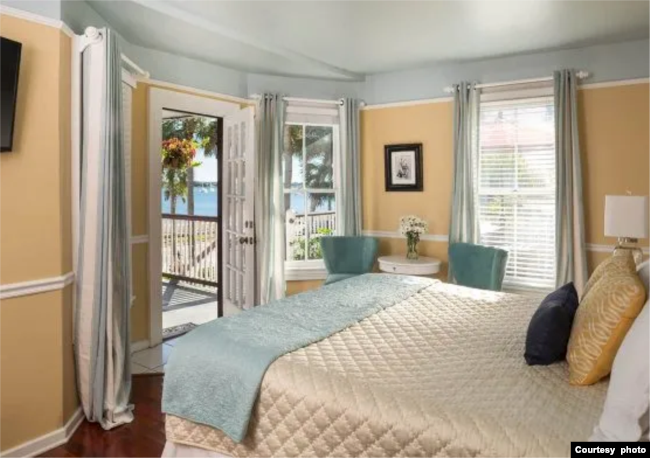From VOA Learning English, this is the Health & Lifestyle report.
In the United States, a quiet change is happening at work. Many workers are taking “workations.” This is when employees work remotely from a vacation place without telling their boss.
Workation combines the words “work” and “vacation.” Another example is “staycation.” This word describes when a person decides to stay home during vacation rather than traveling.
During the COVID-19 pandemic, teleworking and remote work led people to re-think parts of their professional and personal lives. This increased the popularity of workations.
Corporate trainer Rudi Riekstins works with businesses and employees. He told VOA the pandemic made people question what they really wanted in their work and personal lives.
Riekstins said that as a result, some people started to feel like they wanted to avoid the busy, work-driven life sometimes described as a “rat race.” And as people went back to work, they sought to have more control.
One study by hospitality management company Mews found that about 29 percent of employees said they had worked remotely from a vacation place without telling employers. The study, carried out by market research company OnePoll, involved 1,000 American travelers and 1,000 American hotel workers.
The research suggested that 52 percent of employed Americans would use vacation travels as a chance to work remotely.
Riekstins said workations can be good for both workers and employers. For example, a workation can improve worker happiness by making life more interesting.
“Productivity goes up by 70 percent on average when people are happier when they are working. And we see happy people when they’re traveling because they feel stimulated,” said Riekstins. “You start to be stimulated emotionally, mentally, and physically, and then when you show up to work, you are more creative.”
Some hotel companies offer workation specials to boost business, especially during slower times.
Sandy Wieber owns the 17-room Bayfront Marin House in St. Augustine, Florida. She also rents out eight beach cottages. Wieber herself worked remotely for eight years and now offers workation services that she would have liked using.

In Georgetown, Maine, the 13-room Gray Havens Inn, which sits near the water, created a special program that aims to appeal to younger, remote workers.
“We have a lot of younger travelers, but not as many as we would like. This is part of the reason we started this program,” said innkeeper Ali Barrionuevo. “I read about other hotels doing it, so we put it out there to see if we could attract people who were teleworking.”
The special includes 25 percent off the room rate for a seven-day stay. The room comes with daily breakfast, a welcome gift, and some food and drinks. Barrionuevo also provides advice and support for seeing the area and taking part in activities.
“When they are done working, we help them find out what they like and create itineraries to help them see the things they want or should see with limited time,” she added.
A public opinion study carried out by ResumeBuilder.com found that one in six Gen Z workers used a false online background of a home office to fool their employer.
Gen Z is a name for the generation of people born in the late 1990s through the early 2000s.
Another study from 2023, found that 51 percent of Gen Z workers said they had worked remotely from a vacation place, but did not tell their employers.
Riekstins noted that not all workations have to be secret. Some employers permit workations as long as employees get their work done. “A number of the organizations that I do currently work with don’t care where their employees work, as long as they produce the results and it’s done within the office hours.”
Riekstins said he thinks more companies should accept remote work situations as a way to improve worker satisfaction and business productivity.
He said employers should be asking: Are workers happy? Are they able to work anywhere and still get the job done? Can companies get better products and better results with happier workers? And will this make them stay at the company?
And that’s the Health & Lifestyle Report. I’m Anna Matteo.
Dora Mekour reported this story for VOA News. Anna Matteo adapted it for VOA Learning English.
_____________________________________________________
Words in This Story
remote –adj. as in work, the practice of employees doing their jobs from a location other than a central office operated by the employer
rat race –n. strenuous, wearisome, and usually competitive activity or rush
hospitality –n. activity or business of providing services to guests in hotels, restaurants, bars, etc. : usually used before another noun
stimulate –v. to excite to activity or growth or to greater activity
boost –v. to increase in force, power, or amount
cottage –n. a usually small house for vacation use
attract –v. to pull to or draw toward oneself or itself
itinerary –n. the route of a journey or tour or the proposed outline of one
